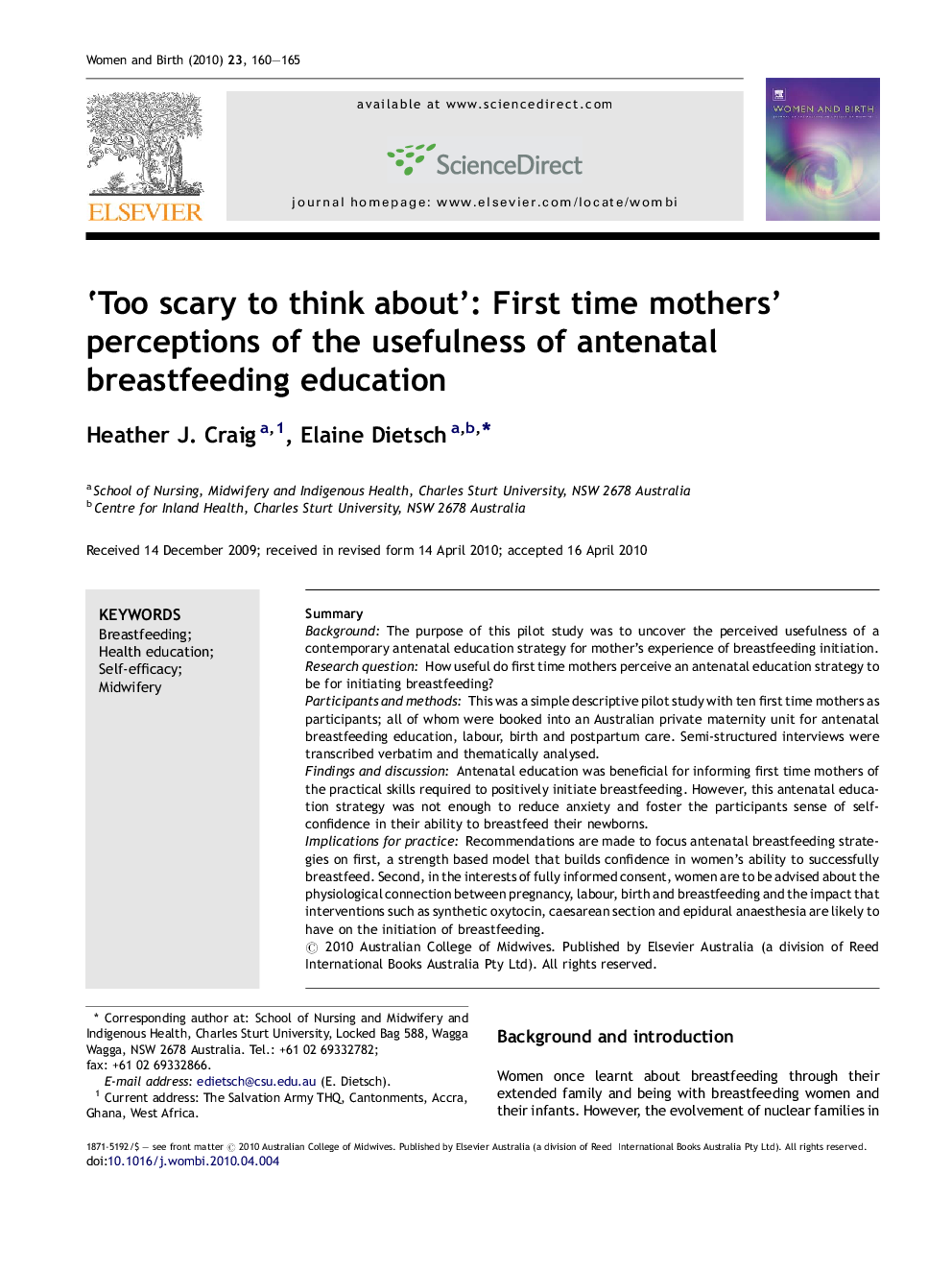| Article ID | Journal | Published Year | Pages | File Type |
|---|---|---|---|---|
| 2636323 | Women and Birth | 2010 | 6 Pages |
SummaryBackgroundThe purpose of this pilot study was to uncover the perceived usefulness of a contemporary antenatal education strategy for mother's experience of breastfeeding initiation.Research questionHow useful do first time mothers perceive an antenatal education strategy to be for initiating breastfeeding?Participants and methodsThis was a simple descriptive pilot study with ten first time mothers as participants; all of whom were booked into an Australian private maternity unit for antenatal breastfeeding education, labour, birth and postpartum care. Semi-structured interviews were transcribed verbatim and thematically analysed.Findings and discussionAntenatal education was beneficial for informing first time mothers of the practical skills required to positively initiate breastfeeding. However, this antenatal education strategy was not enough to reduce anxiety and foster the participants sense of self-confidence in their ability to breastfeed their newborns.Implications for practiceRecommendations are made to focus antenatal breastfeeding strategies on first, a strength based model that builds confidence in women's ability to successfully breastfeed. Second, in the interests of fully informed consent, women are to be advised about the physiological connection between pregnancy, labour, birth and breastfeeding and the impact that interventions such as synthetic oxytocin, caesarean section and epidural anaesthesia are likely to have on the initiation of breastfeeding.
